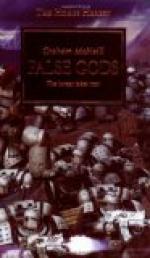As Cardigan pretended to portray life on the baronial estate of Sir William Johnson, the first uneasiness concerning the coming trouble, the first discordant note struck in the harmonious councils of the Long House, so, in The Maid-at-Arms, which followed in order, the author attempted to paint a patroon family disturbed by the approaching rumble of battle. That romance dealt with the first serious split in the Iroquois Confederacy; it showed the Long House shattered though not fallen; the demoralization and final flight of the great landed families who remained loyal to the British Crown; and it struck the key-note to the future attitude of the Iroquois toward the patriots of the frontier—revenge for their losses at the battle of Oriskany—and ended with the march of the militia and continental troops on Saratoga.
The third romance, as yet incomplete and unpublished, deals with the war-path and those who followed it led by the landed gentry of Tryon County; and ends with the first solid blow delivered at the Long House, and the terrible punishment of the Great Confederacy.
The present romance, the fourth in chronological order, picks up the thread at that point.
The author is not conscious of having taken any liberties with history in preparing a framework of facts for a mantle of romance.
Robert W. Chambers.
NEW YORK, May 26, 1904.
D. APPLETON AND COMPANY, NEW YORK.
* * * * *
WORKS OF ROBERT W. CHAMBERS.
IOLE
Colored inlay on the cover, decorative borders, head-pieces, thumb-nail sketches, and tail-pieces. Frontispiece and three full-page illustrations. 12mo. Ornamental Cloth, $1.25.
Does anybody remember the opera of The Inca, and that heart-breaking episode where the Court Undertaker, in a morbid desire to increase his professional skill, deliberately accomplishes the destruction of his middle-aged relatives in order to inter them for the sake of practice?
If I recollect, his dismal confession runs something like this:
“It was in bleak November
When I slew them, I remember,
As I caught them unawares
Drinking tea in rocking-chairs.”
And so he talked them to death, the subject being
“What Really Is Art?”
Afterward he was sorry—
“The squeak of a door,
The creak of a floor,
My horrors and fears enhance;
And I wake with a scream
As I hear in my dream
The shrieks of my maiden aunts!”
Now it is a very dreadful thing to suggest that those highly respectable pseudo-spinsters, the Sister Arts, supposedly cozily immune in their polygamous chastity (for every suitor for favor is popularly expected to be wedded to his particular art)—I repeat, it is very dreadful to suggest that these impeccable old ladies are in danger of being talked to death.




